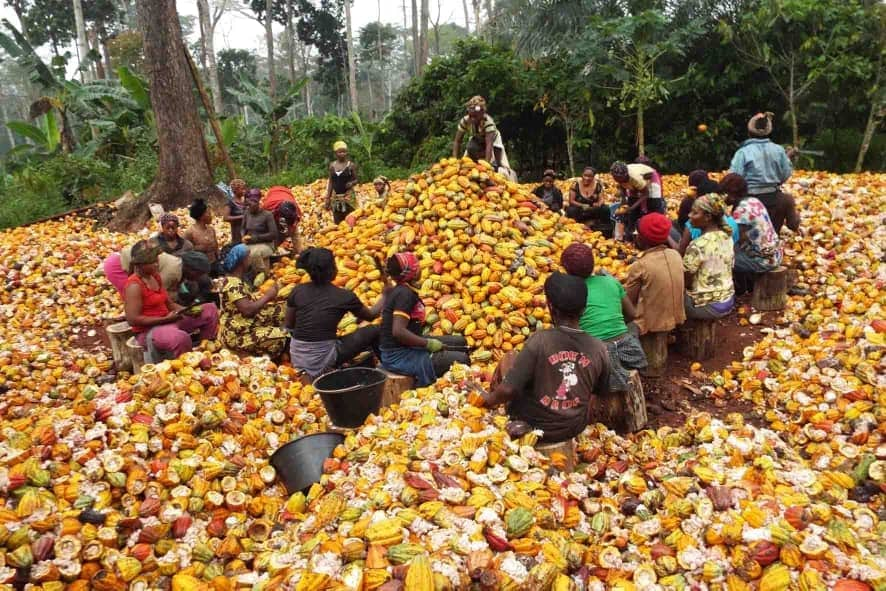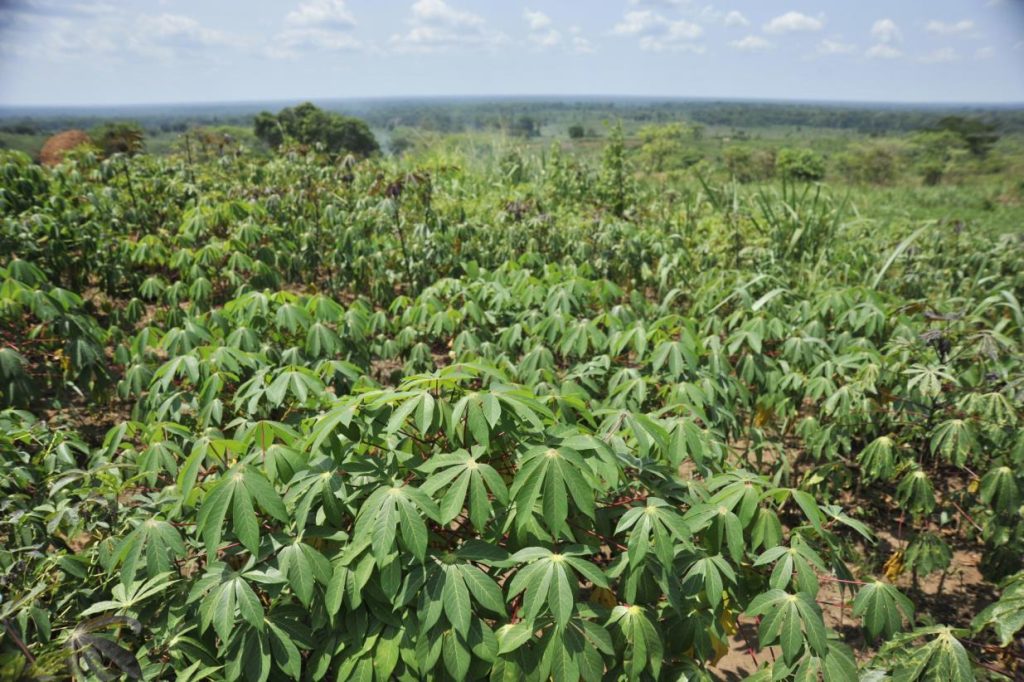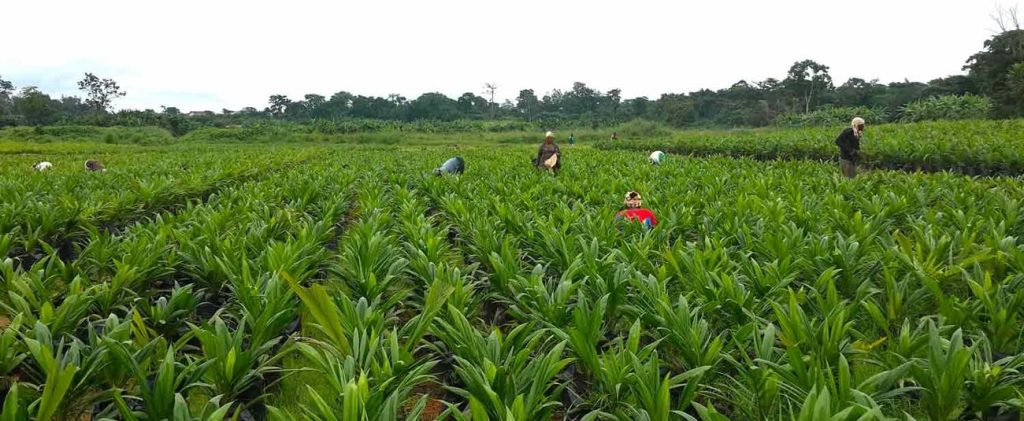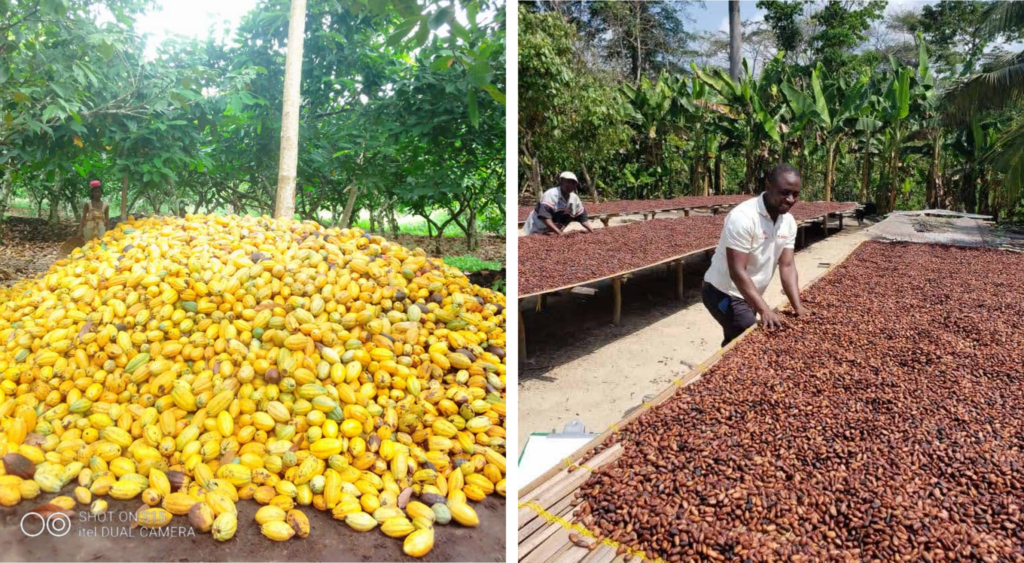
Agriculture in Cameroon plays a crucial role in the economy, providing employment for a significant portion of the population and contributing to food security. However, it also faces several challenges impacting the environment and local communities. Here’s an overview of the impacts and potential solutions:
Impacts of Agriculture in Cameroon
1. Deforestation: Agricultural expansion, particularly for cash crops like cocoa and palm oil, has led to significant deforestation, threatening biodiversity and contributing to climate change.
2. Soil Degradation: Intensive farming practices can lead to soil erosion, nutrient depletion, and reduced fertility, impacting long-term agricultural productivity.
3. Water Resource Depletion: Overuse of water for irrigation can lead to the depletion of local water resources, affecting both agriculture and local communities.
4. Loss of Biodiversity: The conversion of natural habitats into agricultural land can result in habitat loss for many species, leading to a decline in biodiversity.
5. Climate Change Vulnerability: Agriculture is both a contributor to and affected by climate change. Changes in rainfall patterns and increased temperatures can impact crop yields.
6. Economic Inequality: While agriculture can be a source of income, smallholder farmers often face challenges such as lack of access to markets, credit, and technology, leading to economic disparities.


Solutions for Sustainable Agriculture in Cameroon
1. Agroecology Practices: Promote agroecological farming methods that enhance biodiversity, improve soil health, and reduce reliance on chemical inputs.
2. Reforestation and Afforestation: Implement programs to restore degraded lands and promote tree planting alongside agricultural activities to combat deforestation.
3. Water Management Strategies: Develop sustainable irrigation practices and water conservation techniques to ensure efficient use of water resources.
4. Crop Diversification: We encourage farmers to diversify their crops to improve resilience against climate change and market fluctuations.
5. Education and Training: We provide training programs for farmers on sustainable farming practices, pest management, and soil conservation techniques.
6. Access to Markets: Improve infrastructure and access to markets for smallholder farmers to ensure they can sell their produce at fair prices.
7. Policy Support: Advocate for policies that support sustainable agriculture, protect land rights, and promote fair trade practices.
8. Community Involvement: Engage local communities in decision-making processes related to agricultural practices and land use to ensure their needs and knowledge are considered.
9. Research and Innovation: Invest in agricultural research to develop climate-resilient crop varieties and sustainable farming technologies.
10. International Collaboration: Work with international organizations and neighboring countries to share best practices and resources for sustainable agricultural development.
By addressing these impacts and implementing the strategies outlined, we can foster a more sustainable agricultural system that not only meets the needs of current populations but also preserves resources for future generations. Here are some additional considerations:
11. Education and Training: Provide farmers and agricultural workers with training programs that focus on sustainable practices, climate adaptation strategies, and the use of new technologies. This will empower them to make informed decisions and improve productivity while minimizing environmental impacts.
12. Soil Health Management: Promote practices that enhance soil health, such as crop rotation, cover cropping, and reduced tillage. Healthy soils are crucial for maintaining productivity and resilience against climate change.
13. Water Management: Implement efficient irrigation systems and rainwater harvesting techniques to optimize water use in agriculture. This is particularly important in regions facing water scarcity.
14. Agroforestry and Biodiversity: Encourage agroforestry practices that integrate trees and shrubs into agricultural landscapes. This can enhance biodiversity, improve soil quality, and provide additional income sources for farmers.
15. Market Access and Fair Trade: Support smallholder farmers in accessing markets and fair trade opportunities. This can help improve their livelihoods and incentivize sustainable practices.
16. Policy Support: Advocate for policies that support sustainable agriculture, including subsidies for eco-friendly practices, investment in rural infrastructure, and protection of agricultural land from urban sprawl.
17. Community Engagement: Involve local communities in decision-making processes related to agricultural practices and land use. Their traditional knowledge and experiences can provide valuable insights into sustainable practices.
18. Monitoring and Evaluation: Establish systems to monitor and evaluate the effectiveness of sustainable agricultural practices and policies. This will help identify successful strategies and areas needing improvement.
By integrating these approaches, we can create a resilient agricultural system that not only addresses the challenges posed by climate change and environmental degradation but also supports the livelihoods of farmers and the well-being of communities.


